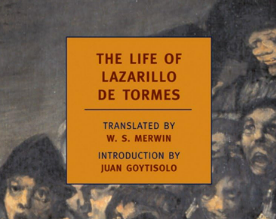Lazarillo of Tormes
IX. How Lazaro Became a Baggage Carrier
byIn Chapter IX of “The Life of Lazarillo of Tormes,” Lazaro delves into his adventures as a baggage carrier in Madrid, offering a humorous yet insightful exploration of his ongoing struggle for survival and dignity. Upon arriving in Madrid, fueled by advice from an experienced picaro, he purchases a porter’s strap and positions himself in the town square, keenly entering the workforce with an optimism likened to a cat’s contentment with giblets. His first assignment comes from a young woman, whose appearance is meticulously groomed, yet deceiving. She leads Lazaro through a labyrinth of streets to a house of ill repute, where Lazaro is momentarily absorbed into the underbelly of Madrid’s social structure.
This woman, a seasoned professional in the city’s covert economy, shares with Lazaro a glimpse of her life story—an account punctuated by exploitation and transience, starting with a Father Rector in Seville and leading her through a series of guardians who viewed her as little more than an asset to be traded. When it comes time for payment, Lazaro learns a harsh lesson in the duplicity of those living on society’s margins; he is violently denied the wages for his labor under the pretense of a misunderstanding, a moment that starkly contrasts his expectations of fair compensation for honest work.
Undeterred, Lazaro then agrees to assist a Franciscan friar, transporting a bundle to a monastery with the promise of payment fueling his determination. The weight of the bundle strains him physically, a metaphor for the burden of his circumstances and his hopes for a better life. However, upon arrival, Lazaro is met with a dismissal cloaked in sanctity; the friar offers heavenly rewards in lieu of earthly payment, once again leaving Lazaro without material compensation.
This chapter artfully captures the resilience of the human spirit amidst exploitation and disappointment, with Lazaro’s naïveté and hope progressively tempered by the realities of his environment. His encounters—first with the deceitful woman and then with the sanctimonious friar—underscore the varied faces of exploitation and the irony of seeking virtue in a world rife with vice. Lazaro’s journey is a poignant reflection on the universal quest for dignity and the frequent injustice of labor and reward, rendered with a blend of cynicism and humor that characterizes his narrative voice.


0 Comments